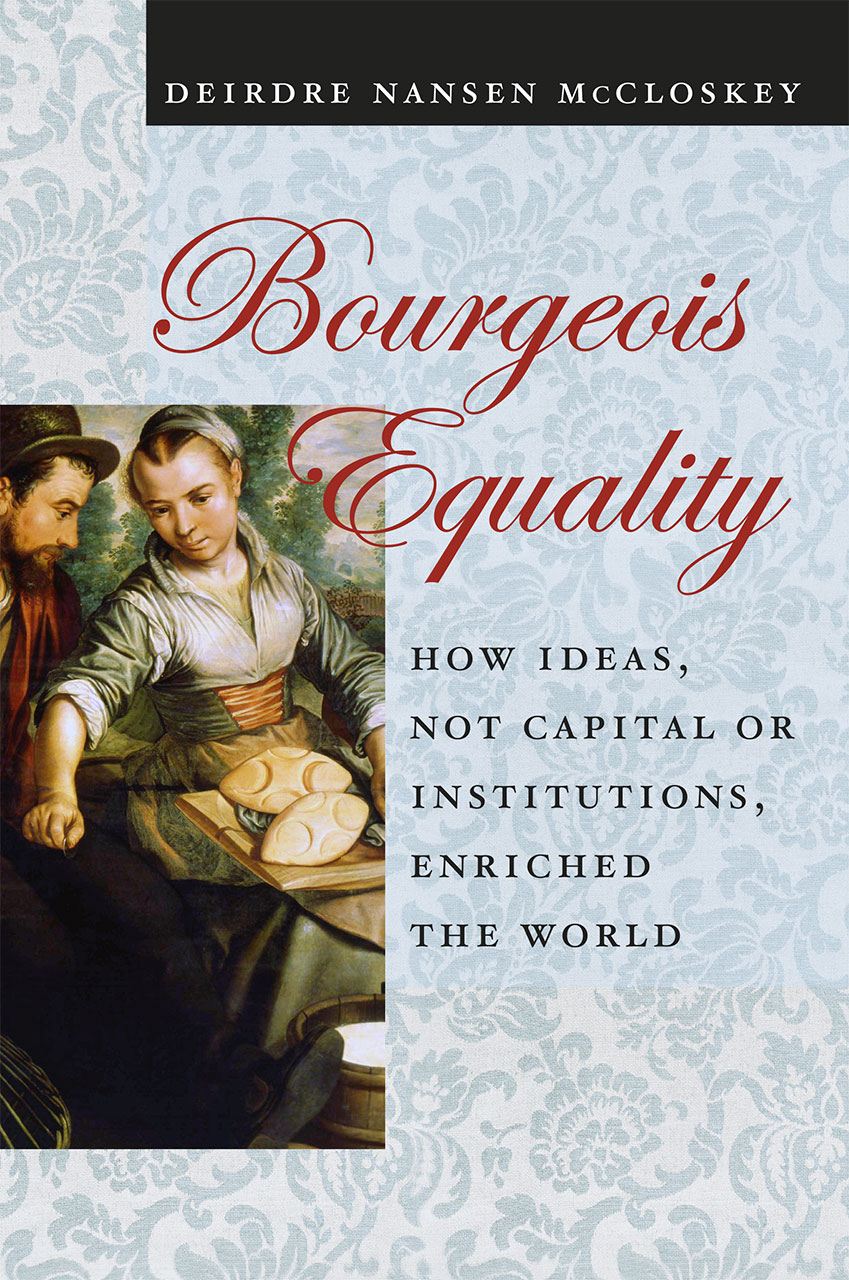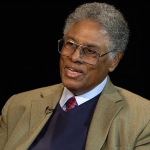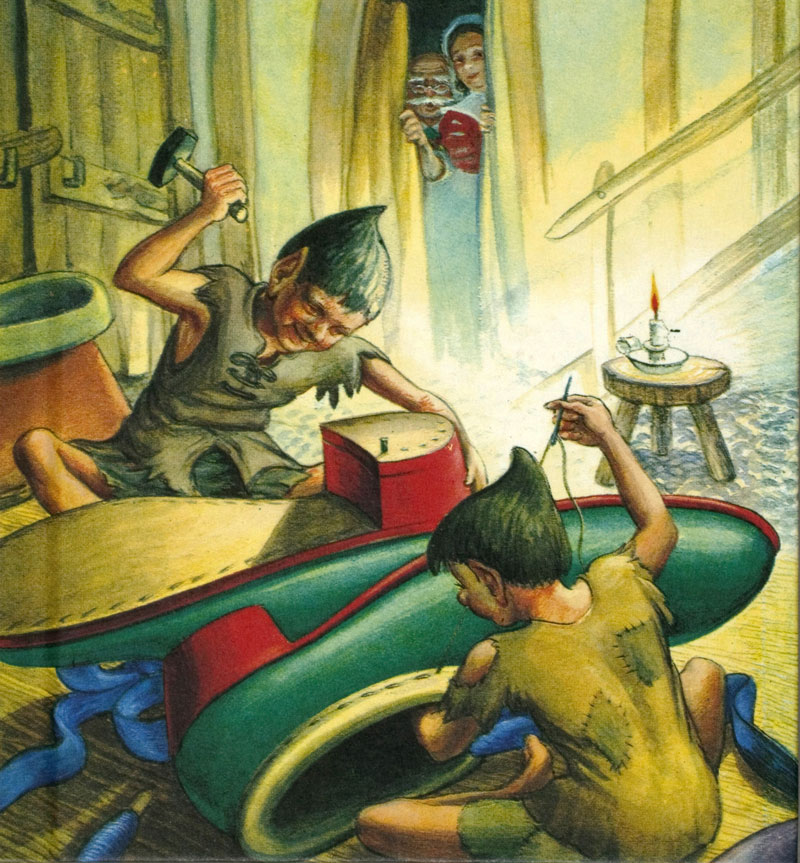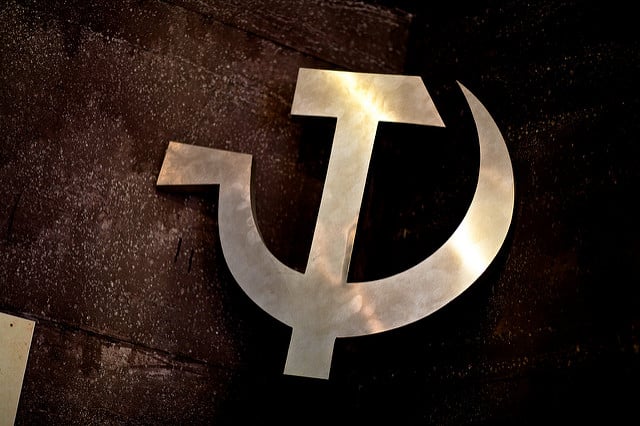By Joseph Sunde
 In Dierdre McCloskey’s latest book, Bourgeois Equality: How Ideas, Not Capital or Institutions, Enriched the World, she builds on her ongoing thesis that our newfound prosperity is not due to systems, tools, or materials, but the ideas, virtues, and rhetoric behind them.
In Dierdre McCloskey’s latest book, Bourgeois Equality: How Ideas, Not Capital or Institutions, Enriched the World, she builds on her ongoing thesis that our newfound prosperity is not due to systems, tools, or materials, but the ideas, virtues, and rhetoric behind them.
Much has been made of her argument as it relates to the (ir)relevance of those material features as causes: “coal or thrift or capital or exports or exploitation or imperialism or good property rights or even good science.” But less has been said about her views on the spiritual/material as it relates to the byproducts.
I’m not yet finished with the book, but on page 70, she offers her view on the spiritual dynamics of what’s to come.
Contrary to popular claims that an increasingly prosperous free society will necessarily trend toward greed, envy, and idleness, McCloskey sees a future with more resources, and thus, more time and space for the transcendent. “One would hope that the Great Enrichment would be used for higher purposes,” she writes…”Enrichment leads to enrichment, not loss of one’s own soul.”
The resulting spiritual change, as I have noted, has been and will be as impressive as the material change. At the level of the purpose of a human life it is the more important outcome. For what is a man profited, if he shall gain the whole world, and lose his own soul? The sacred and meaning-giving virtues of hope, faith, and transcendent love for science or baseball or medicine or God are enabled by our riches in our present lives to bulk larger than the profane and practical virtues of prudence and temperance necessary among people living in extreme poverty. True, in our modern times even unworthy uses of our higher income – eating more Fritos, watching more reality TV – are better physically than in ancient times starving in beggary by the West Gate. Look again at falling death rates worldwide. But one would hope that the Great Enrichment would be used for higher purposes.
And on the most high-minded criteria, it has been, and will be. Enrichment leads to enrichment, not loss of one’s own soul. The American journalist and essayist H.L. Mencken, no softie, noted in 1917 a propos of Sister Carrie’s good fortune, that “with the rise from want to security, from fear to ease, comes an awakening of the finer perceptions, a widening of the sympathies, a gradual unfolding of the delicate flower called personality, an increased capacity for loving and living.” Nor was the University of Iowa economist Frank Knight a softie, yet he too spoke in 1923 about such an increased capacity: “As the standard of living rises, the economic interests of people are transferred more and more out of the sphere of fundamental needs into that of aesthetic and social gratification and pure experimentation.” And no blame attaches.
Contrary to popular predictions and perceptions, the spread of economic prosperity has created more room, not less, for activities centered around the transcendent, and not just through the “extras” it provides in time and treasure. In the work itself, our increasingly enriched economy is enriched by further interconnectedness. The more those connections accelerate, the more our work arcs toward service vs. self-reliance.
Prior to the Great Enrichment, many people simply worked for themselves. Now, thanks to a global economy increasingly driven by free and open exchange, we have the ability to point our service to the other.
“Civilization is sharing in the work of others,” as theologian Lester DeKoster puts it. “It is a circle we will finally see close: Our working puts us in the service of others; the civilization that work creates puts others in the service of ourselves. Thus, work restores the broken family of humankind.”
This new frontier of prosperity – of abundant time and resources and energetic collaboration – can certainly be abused, if neglected. Indeed, the “transcendent” space of civilization can be wholly occupied by spiritual darkness, if we so choose. But that’s where the Christian finds his entrance.
We live at a time where we have incredible channels and resources to respond, creating meaningful enterprises and institutions that remind society of its fundamental purpose and foremost obligations.
We have, as McCloskey puts it, “increased capacity for loving and living,” and we best get to it.












